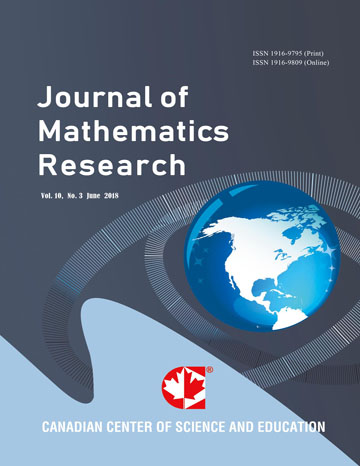Efficiency of Second Occasion over First Occasion on Successive Sampling for Regression Estimation
- S.O. Eze
- G.N Amahia
- O.M. Olayiwola
- A.A. Adewara
Abstract
In this study, successive sampling for regression estimation was used to determine the current estimate of the mean, minimum variance, maximum precision, estimate of change between the two successive occasions under consideration and estimate of average over the period of the two occasions.
The data used were based on the number of persons per block in $50$ randomly selected blocks out of $500$ blocks in Uli, Ihiala Local Government Area, Anambra State, Nigeria.The data were gotten from National Bureau of statistics, Nigeria. The estimate of change and estimate of average over time gives their optimum variances when
$$\rho =0 ~~~~~~ and ~~~~~~~ \mu = 1$$
under varying values of $\rho$ and $\mu$. Also, the variances were found to be smaller in the second occasion as compared to the variance in the first occasion. Hence the the second occasion has a greater efficiency than the first occasion.
- Full Text:
 PDF
PDF
- DOI:10.5539/jmr.v3n2p235
Index
- ACNP
- Aerospace Database
- BASE (Bielefeld Academic Search Engine)
- Civil Engineering Abstracts
- CNKI Scholar
- DTU Library
- EconPapers
- Elektronische Zeitschriftenbibliothek (EZB)
- EuroPub Database
- Google Scholar
- Harvard Library
- IDEAS
- Infotrieve
- JournalTOCs
- MathGuide
- MathSciNet
- Open policy finder
- RePEc
- ResearchGate
- Scilit
- Technische Informationsbibliothek (TIB)
- The Keepers Registry
- UCR Library
- Universe Digital Library
- WorldCat
Contact
- Sophia WangEditorial Assistant
- jmr@ccsenet.org
